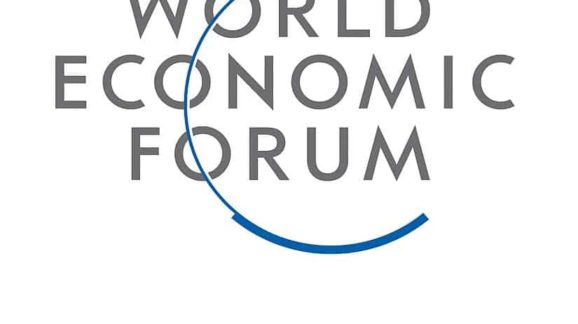CEOs Join Davos Wonks to Launch New Corporate ESG Disclosures

Axios’ “cheerful iconoclast” Felix Salmon reported earlier this week on an agreement by dozens of major corporations to support a new system of corporate reporting on environmental, social, and governance (ESG) topics created by the World Economic Forum’s International Business Council (IBC). This new framework of “21 core and 34 expanded” metrics will now guide the disclosures of supporting firms like Bank of America, Fidelity, Heineken, McKinsey, Nestlé, PayPal, and Unilever. The big four accounting companies (Deloitte, EY, KPMG, and PwC) are reportedly also on board.
There’s a long history of capitalism’s critics coming up with new systems for assessing ethical business operations. Management scholars and business executives started talking about “corporate social responsibility” as far back as the 1950s, when economist Howard Bowen coined the term in his 1953 book Social Responsibilities of the Businessman. Since then, various related theories and movements have waxed and waned, including socially responsible investing, extended stakeholder management, total corporate responsibility, impact investing, and the triple bottom line, among others.
The IBC is, for now, continuing to use the terminology of “environment, social, and governance” in its description of the new project, but has actually divided its new framework into a different set of four categories: governance, people, planet, and prosperity (GPPP). It’s interesting that the IBC has decided that ESG now apparently also needs to be GPPP, since one of the main goals of the new document, “Measuring Stakeholder Capitalism,” (which lists and describes the new “Stakeholder Capitalism Metrics”) was that it be a synthesis and simplification of previous, conflicting frameworks that many industry observers—and, for that matter, insiders—found confusing and counterproductive.
Regardless, these new metrics are being described (again, by Felix Salmon of Axios) as “common standards … that will allow investors to compare their progress against each other on an apples-to-apples basis.” One interesting thing about the metrics is that they’re not specific goals to achieve—they don’t call for firms to reduce their carbon dioxide emissions by 5 percent a year, but to publish numbers on “metric tonnes of carbon dioxide equivalent (tCO2e) GHG Protocol Scope 1 and Scope 2 emissions.”
The first requirement under the governance category, for example, is titled “Setting purpose,” and calls on companies to, well, have one. I assume this is similar to what many companies have already, sometimes described as a “mission statement” or “vision statement.” The IBC, in flawlessly impenetrable bureaucratese, explains that “This disclosure calls for the articulation of the output of a process to formulate and publicize a purpose, providing a useful baseline for whether firms are pursuing purpose or not.” So that’s sorted.
There are many more metrics, of course, on everything from stakeholder engagement and board composition to land use, gender pay ratios, and total taxes paid. Because the Stakeholder Capitalism Metrics call for information disclosure rather than specific goals, it’s left to the observer to determine which direction these numbers are supposed to be trending. It’s an easy guess that the number of work-related injuries should always be declining, but what about “total tax paid”? Traditional corporate management would emphasize tax minimization across the board, paying out as little as possible under existing law.
But one of the biggest complaints of the corporate social responsibility industrial complex is that corporate tax remittances are far too low. Does that mean that Bank of America, Heineken, and Nestlé are all now going to try to maximize their tax payments? Or is there some “Goldilocks” position that is neither too high nor too low, but just right? Is that the “apples-to-apples” basis on which we’ll be judging them against each other? And are we supposed to assume that ESG ratings agencies like MSCI and Sustainalytics are going to start ranking them that way?
This announcement has just been made, so we’ll have to wait and see how this new framework fares, and whether it attracts more supporters or sees fair-weather adherents fall away. Also, whether the WEF’s IBC ESG/GPPP SCM is overtaken by an even more ambitious sequence of acronyms in a few years’ time. One thing we know for sure, though, is that aspiring corporate leaders will never stop flagellating themselves for the implied sins of running corporations and making money.